

Using their witchy skills to change business culture.
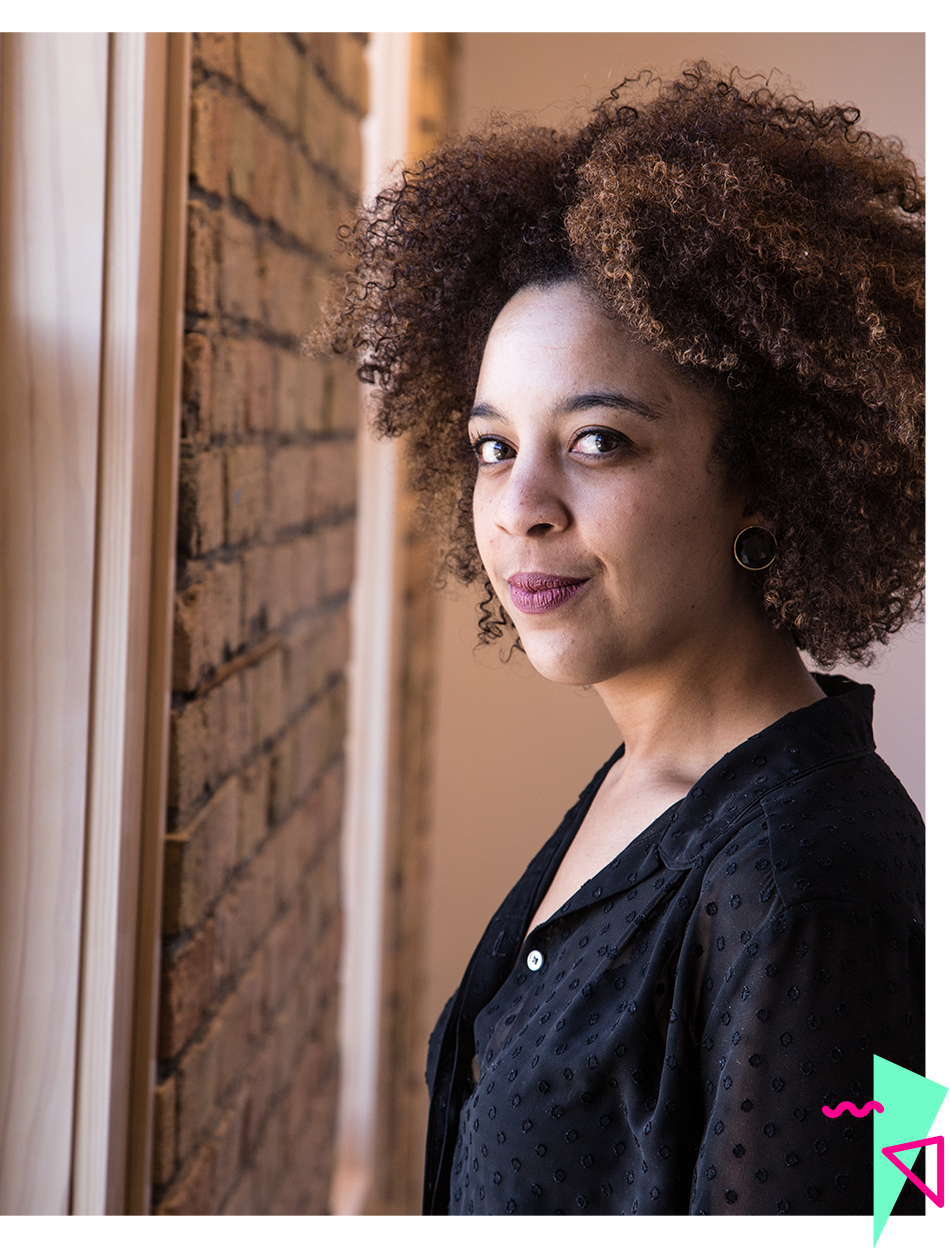
Alex West Steinman
Current: Co-CEO at The Coven and President at MPLS MadWomen, an organization that brings together women across creative fields to foster conversation and ignite community.
Past: Communications Director at Fallon, Communications Director for Minneapolis City Council candidate Jillia Pessenda, and Communications Director for former Minneapolis Mayor Betsy Hodges’ campaign.
What her fellow witches say: Alex is a “feeler” who shines love onto everyone around her, whether or not she knows them. She is truly a voice for people who don’t have the benefit of a platform.
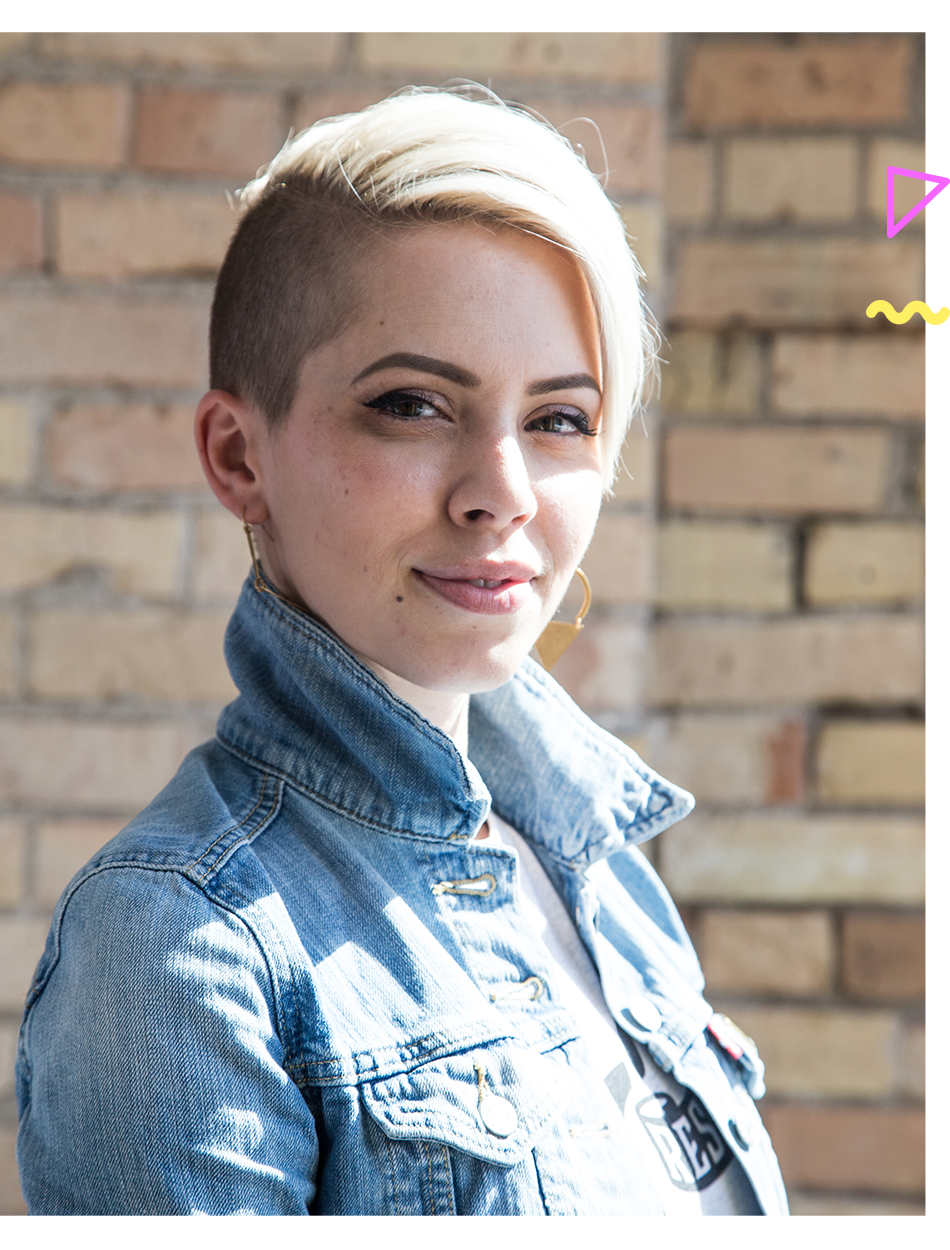
Bethany Iverson
Current: Co-CEO at The Coven and Founding Partner of the North Leadership Council, a coalition of 20+ advertising agencies in Minneapolis united to create a more diverse and inclusive industry.
Past: Head of Strategy at Space150 and Colle + McVoy.
What her fellow witches say: Bethany is the backbone of The Coven. She brings out everyone’s best gifts, and they are their best selves with Bethany Iverson around.
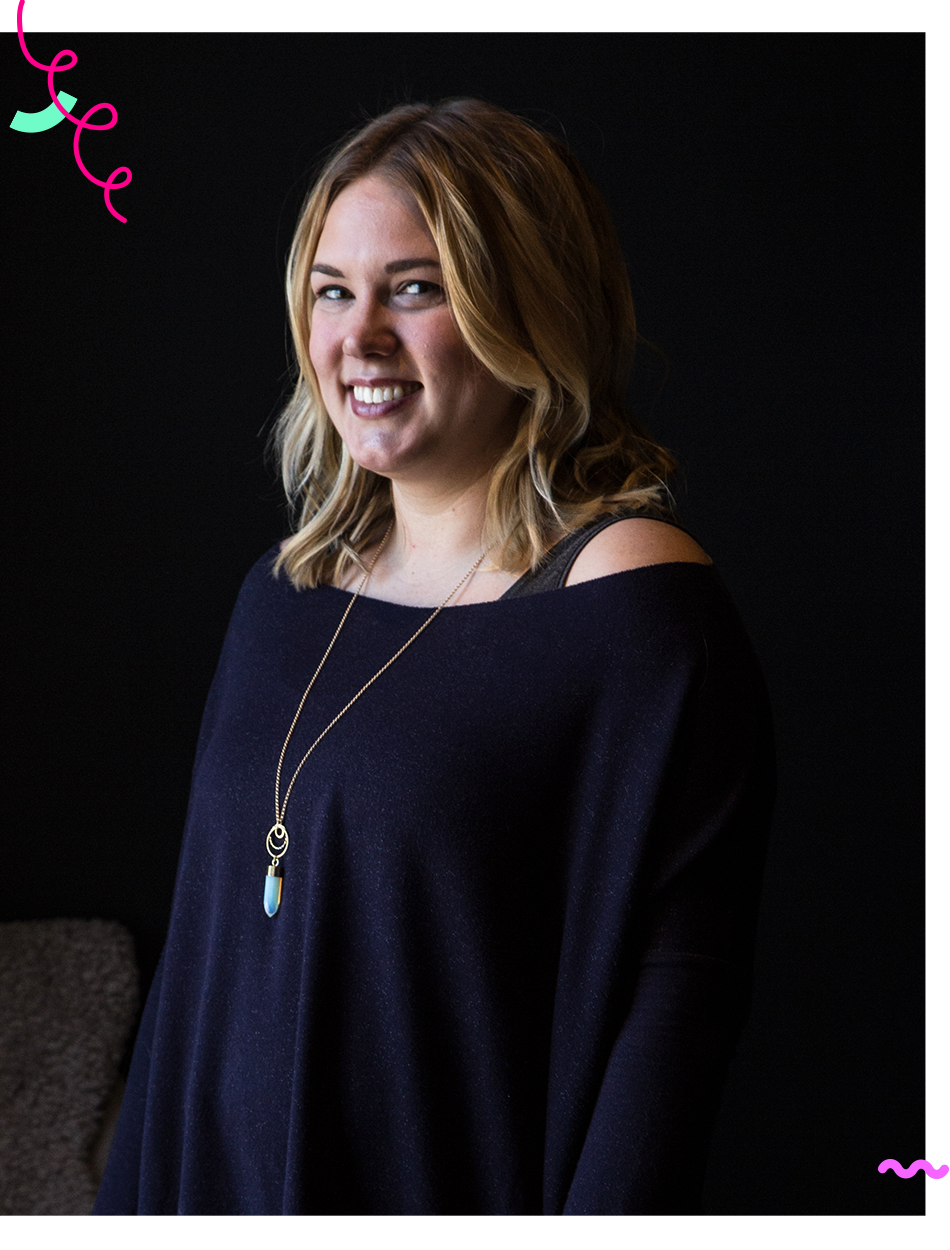
Liz Giel
Current: CMO at The Coven, Programming Chair at MPLS Madwomen, VP, Director of Strategy at Fast Horse.
Past: Group Planning Director at Carmichael Lynch, strategist at Fallon.
What her fellow witches say: Intellectual but relatable, Liz is a smart businesswoman who never lets them devalue themselves or forget how special they are. She has the ability to lift others to her level, making them feel brilliant.
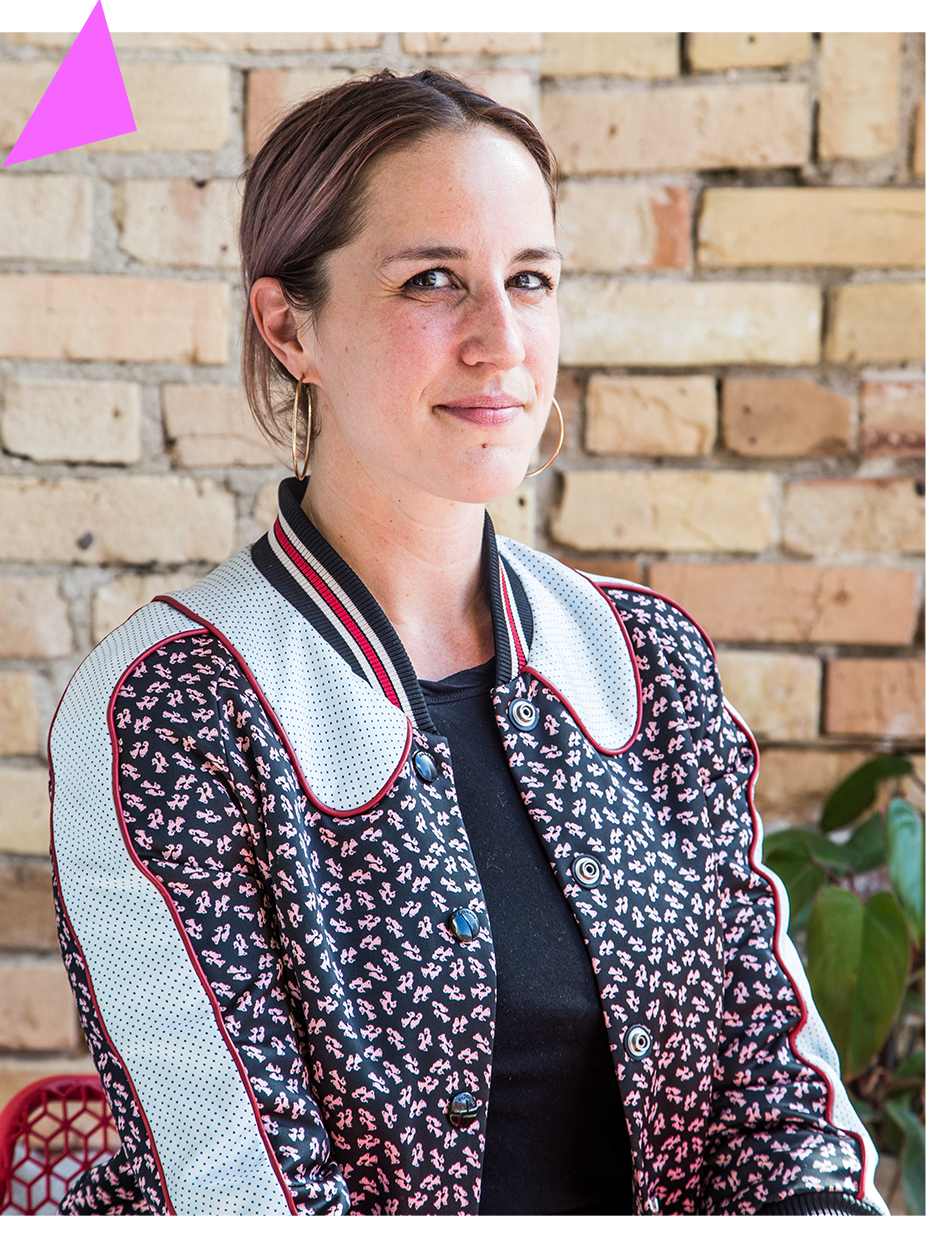
Erinn Farrell
Current: COO at The Coven, Founding Partner at North Leadership Council, and COO at On Being, a Peabody award winning multimedia project reaching millions of people each week.
Past: Advertising Executive at Space150.
What her fellow witches say: Of all the witches, Erinn is the most giving of her time, which can be to her detriment. She has the superhuman ability to be in 15 places at once. Should the world collapse, Erinn’s home is where the co-founders of The Coven would take refuge.

The first thing you notice when talking to the co-founders of The Coven is the laughter.
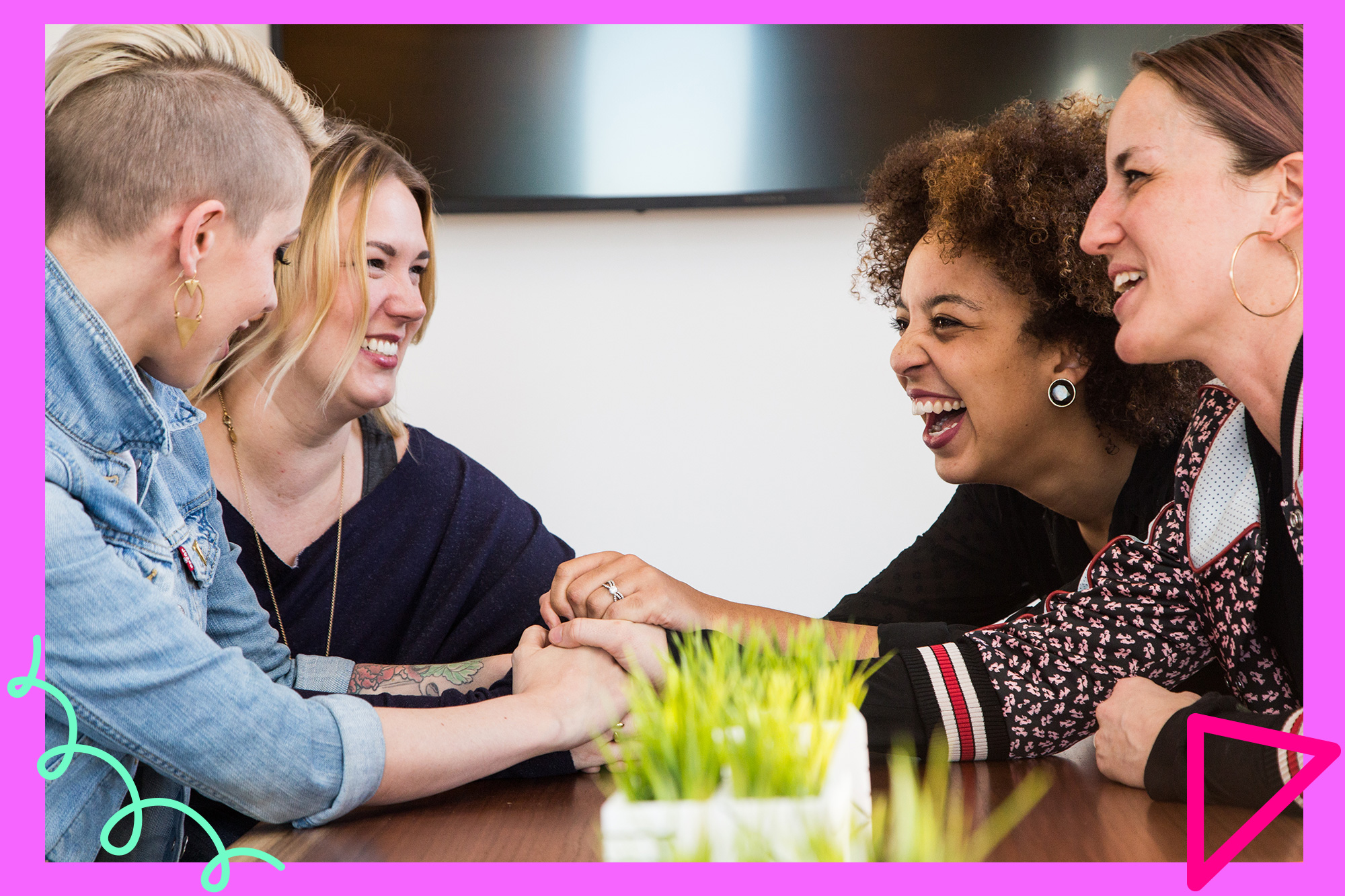
They laugh a lot.
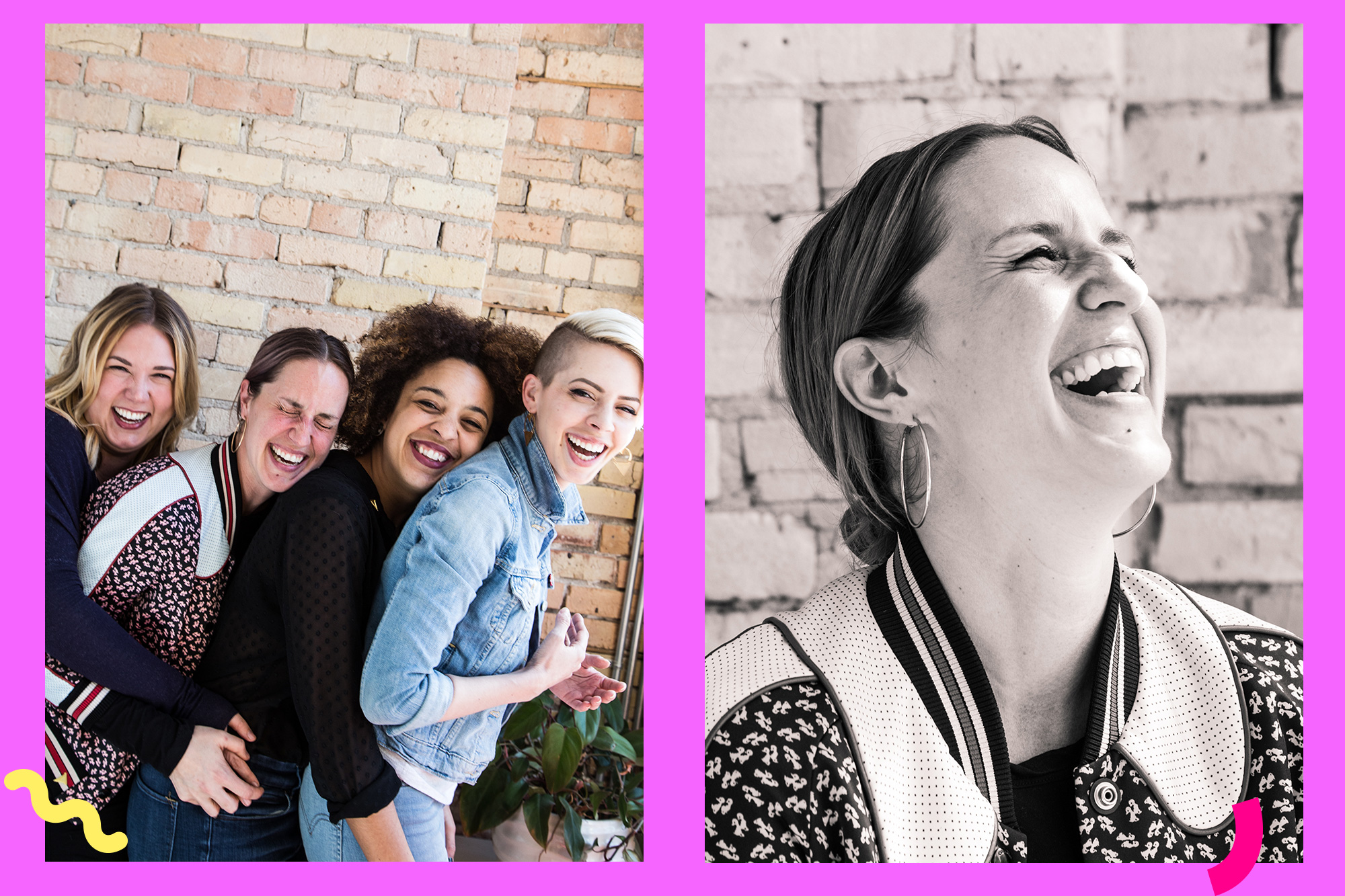
It’s the kind of laughter that you overhear in public and think to yourself, “I’ll have what they’re having.” Of course, you might be tempted to assume that because their business—a co-working and community space in the North Loop specifically for women—is called The Coven, they are actual witches who laugh with a cackle. But, like so many assumptions about women in business, you’d be dead wrong. It’s a joyful, sisterly laugh. Their friendship is more along the lines of a feminist family. It truly is a bond that only the fiery hell of systemic patriarchy can create.


I’ll be 35 this year and I feel for certain that I should have a better grip on what it means to be a woman and be surrounded by women. But I’ve never had that in my life. Even meeting with the amazing women of The Coven in a very relaxed yet professional atmosphere was fraught. What to wear? What to say? Should I be welcoming and vulnerable or icy cool? Will they think I’m cool enough? Professional enough? Smart enough? WILL THEY LET ME JOIN THEIR CLUB? But as soon as I heard that laughter, all of my fear melted away and I saw that there is a world where there is enough advice, experience, joy, love, work to go around. And it’s a world I want to not just live in, but help build.

While not 100% made of witches, The Coven does follow one major tenet of Wicca:

The founders of The Coven are all strong, talented, and hilarious women who have built up formidable careers in advertising — careers that they have, for the most part, left behind.
With a collective employment history that includes working at some of the top ad agencies in America, Alex Steinman, Erinn Farrell, Liz Giel, and Bethany Iverson are a case study in what happens when even the most dedicated powerhouses in their chosen field come to grips with that fact that their beloved industry is stacked against them.
If you haven’t seen the blitz of PR and local events in support of their work, you might be asking yourself “What is The Coven?” It’s simple, really.
The first of its kind in Minneapolis, The Coven is a new community and co-working space “created by women, for women and those who identify as non-binary,” built on a system that values inclusion, mentorship, and abundance.
Located in Minneapolis’ North Loop, the co-founders hope it fosters sweeping transformational change to the lives of women who have not previously found a supportive space in the business world.
With meeting and event spaces, professional development opportunities, programming across a vast array of topics, and concierge-style services to help women make the most of their time, The Coven aims to do everything it can to help empower women however they want to be empowered. Seems a simple enough concept, right?
But there’s nothing easy, psychologically or tactically, about uncovering the need for something as radical as The Coven.

Early in the spring of 2017 — just after a businessman and TV personality with zero political experience was sworn in as president after winning the electoral college vote against a strong politician who was widely believed to be a shoe-in for first female president — the co-founders of The Coven decided they’d had enough of the sexist and exclusionary nonsense of the ad industry.
It wasn’t one specific instance that opened their eyes to problems within their agencies. Rather, the years of slights, overly-enthusiastic criticism, and appalling lack of diversity finally bubbled over into a desire to affect change for themselves and all the other women who found themselves professionally stymied by those same forces.
“There is a cost on many different fronts to working in an environment that is fundamentally set up to your detriment.” —Bethany
For her, there is a mental toll in constantly trying to understand why, as a woman, there’s a certain trouble to fitting in. “The further up you go in an agency the more you realize that it’s not a place that’s designed for your success.”
For three of the four, the uprooting happened quickly, but not all at once. Erinn was first. She remembers a pivotal moment when Alex, a woman of color, confided that she had come to terms with the fact that the diversity problems within the ad world were not going to change within her lifetime. “It was just a moment of fuck that, because I knew she was right,” Erinn recalls.
“It didn’t matter how hard any of us were working at it, no matter how many organizations we started, no matter how many events we threw, inevitably you’d come back to work the next day and you’d have someone from your leadership team that would pick apart something you said.”
“At that point it was just like: something’s gotta give and it’s pretty much going to be my career.” — Erinn

The four tried to break down these gendered constructs through their work at MPLS Madwomen and North Leadership Council, but they found themselves unable to create the necessary change—at the necessary pace—within the existing systems of the industry. “I think incremental change there is possible, but not transformative change,” Bethany says. “And that’s really our vision.”
“We want to transform this city. It’s not going to happen through trying to convince old rich white men to do things differently.”
As the idea of The Coven began to form in their minds, Alex, Erinn, Liz, and Bethany put their advertising know-how to work, engaging in market research and focus groups to ensure that whatever they were going to do, it was going to be impactful. Their version of the old gather-in-a-bland-room-to-answer-questions? ‘Witching hours,’ of course; evening sessions hosted at Erinn’s house, gathering up brilliant female minds from all backgrounds.
Fueled by wine and vulnerability, the conversations focused on trying to understand what The Coven would come to be and what it would need to offer to be compelling.
Each successive witching hour revealed more and more about the depressing status quo for women in the workplace across all industries and levels.
This only increased the urgency to create a space like The Coven, and to ensure that it reached beyond the advertising world.

There was one witching hour in particular that changed what The Coven would become. Andrea Jenkins — Ward 8 Minneapolis City Councilwoman, and the first openly transgender black woman to be elected to public office — attended one of their events during a time when the narrative of The Coven was still focused on tearing down systems of oppression and “hexing the patriarchy.” According to Bethany, Andrea recommended a recalibration.
“She was kind of like, ‘OK…here’s the deal: people have been tearing down systems of oppression for decades and centuries. At some point you need to turn and start talking about what you’re going to build to replace those things.’”
For the co-founders, it was a lightbulb moment. “Instead of talking about, like, ‘fuck men, there’s just this awful patriarchy everywhere,’ we have to talk about building the world that we want to exist,” Bethany says. “That feeling of hope and optimism drives all of the things that we do.”

With that, The Coven found a new urgency around the creation of a new system, one that represents their values of abundance, inclusion, and the power of women. “What I think propelled us to do that was the fear of doing nothing,” Alex says. “The fear of still being in the same room with the same women ten years from now and looking at each other and going ‘Shit, didn’t we just have the event on confidence and didn’t we just have the discussion on dismantling leadership and building a new one? We just wanted to build our own system.”
“We deserve better and the women in this community deserve better.”—Alex
It’s taken a lot of work—and money—to get The Coven up and running. To make it all happen, the co-founders orchestrated a tidal wave of programming and pitch events to spread the word about the power of a witchy business sisterhood. And the message resonated big time. Using the female-focused I Fund Women crowdfunding platform, The Coven achieved its funding goal of $200,000 in early 2018 through donations and sales of memberships. To ensure that the cost of a membership is not a barrier to entry, for every five annual memberships purchased The Coven offers one all-access scholarship to women who aren’t currently able to pay the full price of membership.
The scholarships give priority to those from historically marginalized backgrounds, including people of color, immigrants, or people from the LGBTQ community. “What’s most important to us as we select scholarship recipients is that they want and need a space like ours, that they’re eager to contribute to the community we’re creating, and that their voices add new depth and perspective to our membership base,” says Bethany.
“You don’t have to come to The Coven with really radical, progressive politics,” —Liz
“You just want to be around other women and find mentorship and find support and find ways to get advice. Those things are just as great.”

Ultimately, the goal of The Coven is to build a community of women who have both knowledge to share and plenty to gain.
Its founding member base reflects the community they are hoping to serve—a perfect third breakdown of individual business owners who are trying to get a foothold and will be boosted by the community, mid-career working women who will benefit from speaker-focused networking events and executive leadership workshops, and late-career execs or early retirees who want to leave the world better than they found it through mentoring.
That final third is especially important to the co-founders. For them, it is vital that their message of diversity and inclusion also intersect with age. Female support and success isn’t just for the young, after all. The true power of The Coven is in the natural community formed by women’s shared histories. As part of their pitch tour, The Coven hosted events focused on women in executive roles, with an average attendee age of 60. The feedback from those events was both “empowering and sad,” Erinn says. During one particular event it was hard to “hear from our mother’s generation about the work that they put in, and recognizing that their daughter’s generation wasn’t much farther along.” And while many of them understood that something like The Coven would not have been possible even a decade ago, the group was supportive of the project.
That morning, a number of women became founding members or donated to The Coven.

Getting that buy-in from working women of earlier generations is big. The history of women in business was born out of a scarcity model—the idea that there aren’t enough resources or opportunities to fit the needs of society’s women. “‘Only one of you gets to have a seat at the table.’ or: ‘we’re only going to have one female that fills this spot,’” Alex says.
“The pressure has always been to, quite frankly, fit into a culture structure that was never built for us.” —Alex

At this point I want to step out from behind the story again and raise my hand, because frankly, hearing the co-founders of The Coven talk about a “scarcity model” being the basis for why we, as a culture, treat female relationships like they can only be toxic or “catty” blew my mind. And I hope it’s also blowing yours.
At The Coven, “there’s no fear of scarcity,” says Alex. “There’s fear of running a business, of being entrepreneurs, but it’s an abundance mindset. There are enough couches, there’s enough space to rent, there’s enough time in the day, there’s enough supplies for everyone. And there’s enough work for us to do.”
It’s radical in the truest sense of the word. Intentional scarcity is the basis for supply and demand economics. Keep the supply low and the demand goes up—that’s how power festers.
The Coven isn’t about hoarding power. It’s about harnessing it from our depths and using it to bring light.


Contributors




